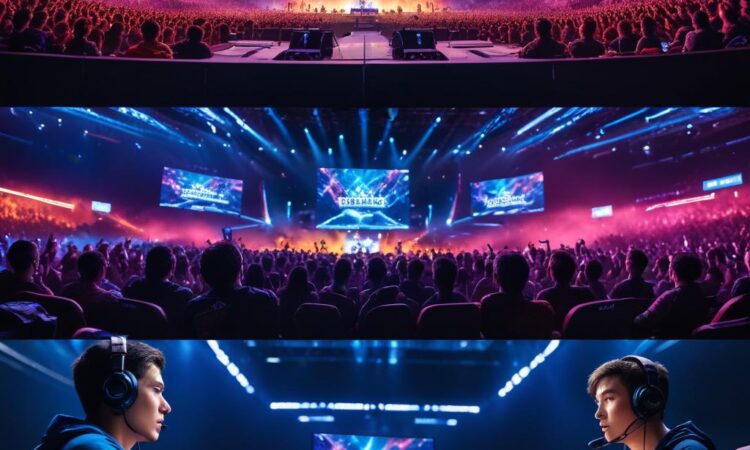The Impact of Streaming Culture on the Mental Health of Professional Esports Players
Let’s be real, the world of professional esports is booming. We’re talking massive tournaments, millions of viewers, and players raking in serious cash. But behind the flashy lights and epic gameplay, there’s a side we don’t always see: the intense pressure and mental health challenges faced by these pro gamers. And a huge part of that pressure comes from the ever-present world of streaming.
Think about it. These players aren’t just competing; they’re constantly performing. Their entire lives, from their gaming sessions to their downtime, can be broadcast live to thousands, even millions, of viewers. Every mistake, every frustrated sigh, every moment of doubt is instantly available for public consumption. That’s a level of scrutiny few people ever experience.
The pressure to perform consistently is immense. Fans expect perfection, and even a minor slip-up can trigger a torrent of negative comments, criticism, and even outright abuse. This constant barrage of public opinion can be incredibly damaging to mental well-being. Imagine having your every move dissected and judged by a vast, often anonymous, audience – it’s a recipe for anxiety and stress.
And it’s not just the negative feedback that’s a problem. The pressure to maintain a positive online persona, to always be entertaining and engaging, adds another layer of complexity. Many pros feel compelled to constantly stream, even when they’re tired, stressed, or just need a break. This relentless pressure can lead to burnout, exhaustion, and ultimately, serious mental health issues.
We’re talking about real people here, not just avatars on a screen. They have feelings, vulnerabilities, and personal lives just like everyone else. The constant exposure, the relentless pressure to perform, and the potential for online harassment can take a significant toll on their mental health. It’s a pressure cooker environment, and the consequences can be severe.
So, what can be done? How can we support these players and create a healthier environment for them to compete and thrive?
One important step is fostering a more understanding and supportive online community. Fans need to remember that esports players are human beings, not robots. Constructive criticism is fine, but abusive or hateful comments are unacceptable. Platforms need to do a better job of moderating their communities and protecting players from harassment.
Additionally, teams and organizations need to prioritize the mental health of their players. This means providing access to mental health resources, creating a supportive team environment, and encouraging players to take breaks when needed. There should be a culture that prioritizes well-being alongside performance.
Education is also key. Both fans and players need to understand the impact of online behavior and the importance of mental health. Raising awareness can help create a more compassionate and understanding community.
The relentless nature of streaming also needs to be addressed. While streaming provides income and connects players with their fans, it’s crucial for players to set healthy boundaries. This could involve limiting streaming hours, taking scheduled breaks, and prioritizing offline activities to maintain a balanced life. Teams can help by scheduling streaming obligations in a way that allows for rest and recovery.
Another critical factor is promoting a culture of self-care within the esports community. Players need to learn and practice healthy coping mechanisms for stress and anxiety, such as mindfulness, exercise, or spending time with loved ones. Openly discussing mental health should be normalized, removing any stigma associated with seeking help.
Finally, there’s a need for greater regulation and ethical guidelines surrounding esports streaming. This could involve setting limits on streaming hours, ensuring fair compensation for players, and creating stricter guidelines for content moderation. This regulatory framework should be developed in collaboration with players, teams, organizations, and platforms to ensure that it’s both effective and fair.
The future of esports hinges on recognizing and addressing the mental health challenges faced by professional players. By fostering a more supportive online community, prioritizing mental health resources, promoting self-care, and implementing better regulations, we can help ensure that these incredible athletes can thrive both on and off the screen.
It’s not just about wins and losses; it’s about creating a sustainable and healthy environment where these individuals can pursue their passion without compromising their well-being. The time to act is now. Let’s work together to create a brighter future for professional esports players.

